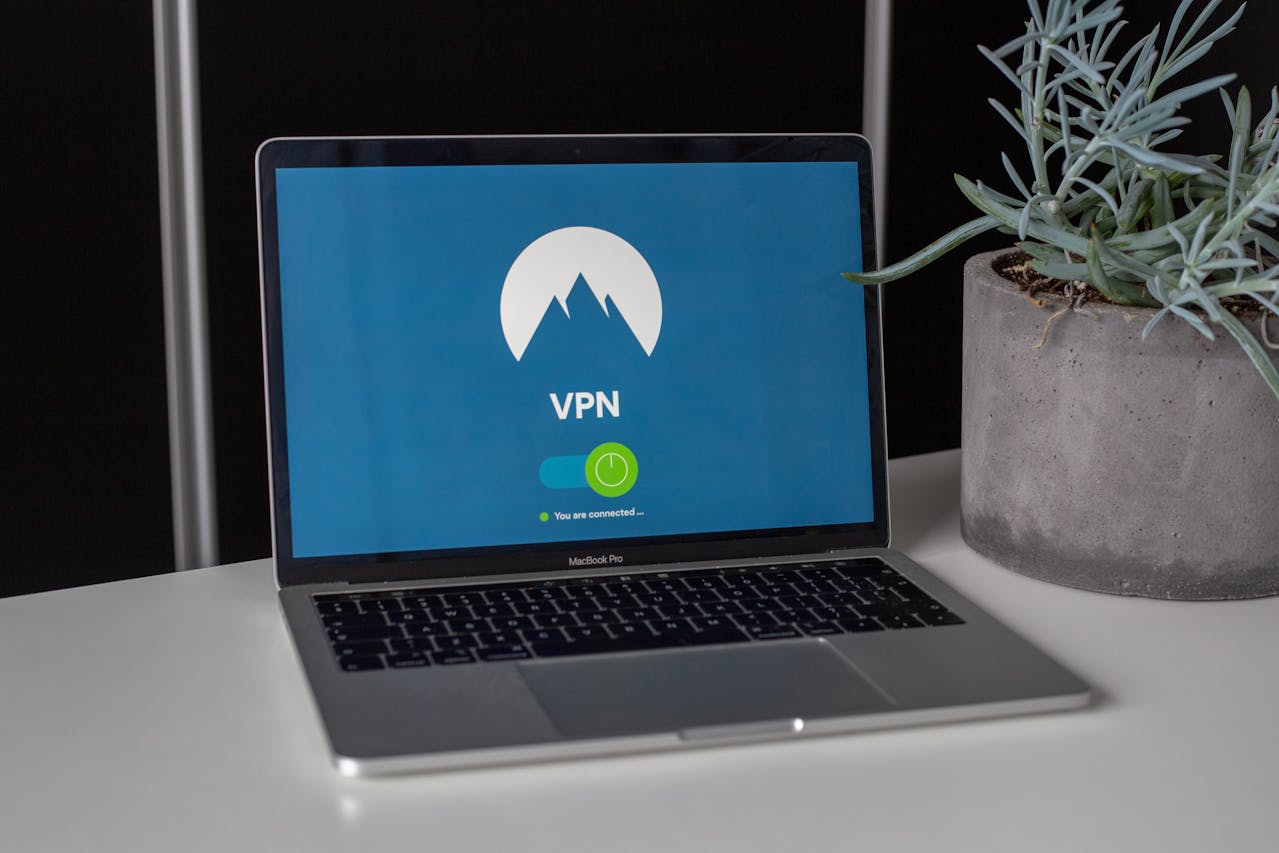Introduction to Cyber Security Australia
The Essence of Cyber Security in Our Digital Age
In today’s interconnected world, where data is a valuable currency and the internet has become an integral part of our lives, cyber security Australia plays a pivotal role in safeguarding our digital presence. As technology continues to advance, so do the threats posed by cybercriminals. Australia, being one of the most digitally connected nations, faces its fair share of cyber security challenges.
The importance of cyber security Australia cannot be overstated. It protects individuals, businesses, and critical infrastructure from cyber threats such as data breaches, ransomware attacks, and identity theft. cyber security ensures the confidentiality, integrity, and availability of data, bolstering trust in online transactions and communications.
The Landscape of Cyber Security Australia
Navigating the Virtual Battleground
The cyber security Australia offers is constantly evolving, mirroring global trends. The country has witnessed a steady increase in cyber attacks across various sectors. Both government and private entities face the threat of nation-state actors, cybercriminal organisations, and even individual hackers seeking to exploit vulnerabilities.
In response to these challenges, the Australian government, cyber security firms, and businesses continuously invest in cutting-edge technologies and employ skilled professionals to mitigate risks effectively. Collaboration between the public and private sectors remains critical in addressing emerging threats and maintaining Australia’s cyber security posture.
Major Cyber Security Threats in the Country
Unmasking the Virtual Adversaries
Australia confronts an array of major cyber security threats that impact individuals, businesses, and the nation as a whole. Phishing attacks, where cybercriminals deceive individuals into revealing sensitive information, remain prevalent. Ransomware, a type of malicious software that encrypts data and demands a ransom for decryption keys, poses significant risks to businesses.
Moreover, Distributed Denial of Service (DDoS) attacks disrupt online services, while Advanced Persistent Threats (APTs) target critical infrastructure and government agencies. As cybercriminals continuously evolve their tactics, understanding these threats is essential for developing effective cyber security strategies.
Cyber Security Australia: Regulations and Compliance
Safeguarding the Virtual Realm: Laws and Frameworks
Australia recognises the importance of regulatory measures to ensure cyber security across the nation. The government has implemented laws and compliance frameworks that govern data protection, privacy, and cyber security practices. These regulations obligate businesses and organisations to adopt measures that safeguard customer data and digital assets.
The Privacy Act of 1988 and the Notifiable Data Breaches (NDB) scheme compel organisations to report data breaches that may cause harm to affected individuals. The Australian Cyber Security Centre (ACSC) provides guidance and resources to businesses for strengthening their cyber security defences.
Overview of Cyber Security Laws and Regulations
A Legal Framework for Cyber Resilience
The regulatory landscape in Australia includes various laws that address cyber security concerns. The Cyber Security Strategy, introduced in 2020, outlines the government’s commitment to enhancing the country’s cyber security posture.
The Telecommunications and Other Legislation Amendment (Assistance and Access) Act 2018 grants authorities powers to request assistance from technology companies in accessing encrypted data to combat serious crimes.
Moreover, the Corporations Act 2001 mandates that businesses implement adequate cyber security measures to protect customer data and other sensitive information. These laws underscore the government’s dedication to cyber resilience.
Data Protection and Privacy Laws
Guarding Personal Information
In an era dominated by digital transactions and interactions, the protection of personal information is of paramount importance. Australia’s data protection and privacy laws aim to safeguard individuals’ personal data from unauthorised access and misuse.
The Privacy Act of 1988 governs the handling of personal information by Australian government agencies and businesses with an annual turnover of over $3 million. It enforces the Australian Privacy Principles (APPs), which set out how personal information must be collected, stored, and used by organisations.
Compliance Frameworks for Businesses
Steering Toward Cyber Maturity
To assist businesses in adhering to cyber security Australia regulations, the Australian Signals Directorate (ASD) provides essential guidance through its cyber security framework known as the “Essential Eight.” This framework outlines eight crucial mitigation strategies that organisations should implement to enhance their cyber security resilience.
The Essential Eight focuses on areas such as application whitelisting, patching applications, and restricting administrative privileges, among others. By following this framework, businesses can significantly reduce their risk exposure to common cyber threats.
Cyber Security Challenges Faced by Australian Organisations
The Unseen Adversary: Cyber Attacks on Businesses
Despite the best efforts of regulatory bodies, Australian businesses face an ever-evolving array of cyber attacks. Cybercriminals continually find new methods to exploit vulnerabilities and gain unauthorised access to sensitive information.
Types of Cyber Attacks on Businesses
Understanding the Arsenal of Cyber Threats
Cyber attacks come in various forms, each with its unique objectives and methodologies. Phishing attacks, where cybercriminals use deceptive tactics to trick users into revealing sensitive information, are pervasive. Ransomware attacks, on the other hand, encrypt data and demand a ransom for decryption keys, crippling businesses until the demands are met.
Another common threat is Distributed Denial of Service (DDoS) attacks, which overwhelm a target’s servers with an influx of traffic, causing disruption to online services. These are just a few examples of the cyber arsenal that poses a significant challenge to Australian organisations.
Impact of Cyber Security Incidents on Companies
The Ripple Effect of Cyber Threats
Cyber security Australia incidents can have far-reaching consequences for businesses. Apart from potential financial losses due to ransom payments and business disruption, companies may face legal liabilities and reputational damage following data breaches.
Customers’ trust in a business may erode when their personal information is compromised, leading to diminished customer loyalty and a drop in sales. To recover from cyber security incidents, companies must invest in both proactive cyber security measures and robust incident response plans.
Best Practices for Cyber Security in Australia
Fortifying Our Digital Fortresses: Protecting Networks and Devices
As cyber threats continue to evolve, implementing best practices for cyber security becomes imperative. Adopting preventive measures and fostering a security-conscious culture are essential in fortifying our digital fortresses.
Creating Strong Passwords and Authentication
The First Line of Defense
One of the simplest yet most effective measures in cyber security is using strong passwords and multifactor authentication (MFA). Weak passwords are vulnerable to brute-force attacks, where cybercriminals use automated tools to guess login credentials.
MFA adds an additional layer of security by requiring users to provide multiple forms of identification before accessing an account. This may include something they know (password), something they have (a mobile device), and something they are (fingerprint or facial recognition). By implementing MFA, businesses significantly reduce the risk of unauthorised access.
Securing Networks and Devices
Building Robust Cyber Perimeters
Network security is crucial in protecting an organisation’s digital assets. Implementing firewalls and intrusion detection systems (IDS) is fundamental in safeguarding networks from unauthorised access and malicious activities.
Firewalls act as virtual barriers between a trusted internal network and external networks, monitoring and controlling incoming and outgoing traffic. IDS, on the other hand, continuously scans the network for suspicious activity and raises alerts if potential threats are detected.
Educating Employees on Cyber Security Awareness
Empowering the Human Firewall
Employees are a critical component of a company’s cyber security defence. By training and educating employees about cyber security best practices and potential threats, businesses create a robust human firewall that can recognise and mitigate potential risks.
Regular cyber security training sessions and simulations of phishing attacks help employees identify common red flags and respond appropriately to potential threats. An educated and security-conscious workforce significantly reduces the likelihood of successful cyber attacks.
Cyber Security Solutions and Tools for Australian Businesses
Arming Against the Cyber Onslaught: Necessary Tools and Defences
To combat cyber threats effectively, Australian businesses rely on various cyber security solutions and tools. These tools, powered by cutting-edge technologies, help detect, prevent, and respond to cyber attacks.
Sentinels Against Malicious Software
Antivirus and anti-malware software form the first line of defence against malware, such as viruses, worms, and trojans. These software solutions continuously scan systems and networks for known malicious code, preventing infections and quarantining threats when detected.
With the increasing sophistication of malware, modern antivirus solutions employ advanced heuristics and behavioural analysis to identify previously unknown threats, providing real-time protection against emerging cyber threats.
Firewalls and Intrusion Detection Systems
The Gatekeepers of Cyber Borders
Firewalls and intrusion detection systems (IDS) play a pivotal role in safeguarding networks from unauthorised access and malicious activities. Firewalls act as virtual barriers between a trusted internal network and external networks, monitoring and controlling incoming and outgoing traffic.
IDS continuously scans the network for suspicious activity and raises alerts if potential threats are detected. Combined, firewalls and IDS provide a layered approach to network security, effectively thwarting cyber attacks before they can cause significant damage.
Encryption and Secure Communication Tools
Locking Away Sensitive Data
Encryption is a fundamental cyber security measure that ensures the confidentiality and integrity of sensitive data. By converting data into an unreadable format that can only be decrypted with a unique encryption key, encryption protects data from unauthorised access even if it falls into the wrong hands.
Secure communication tools, such as virtual private networks (VPNs) and encrypted messaging applications, provide secure channels for transmitting sensitive information, protecting it from interception and eavesdropping.
Cyber Security Trends in Australia
Gazing into the Future: Emerging Threats and Technologies
The landscape of cyber security is in a constant state of flux, with new threats and technologies emerging regularly. As technology evolves, so do the tactics of cybercriminals. This dynamic environment calls for continuous advancements in cyber security technologies to stay ahead of the adversaries.
Adapting to the Ever-Changing Threat Landscape
As cybercriminals evolve their tactics, emerging cyber threats and vulnerabilities continue to challenge the cyber security landscape in Australia. New forms of malware, such as fileless malware that leaves no traces on the victim’s system, pose unique challenges to traditional security measures.
Ransomware attacks also grow increasingly sophisticated, targeting critical infrastructure and government agencies. Moreover, cyber threats targeting emerging technologies like the Internet of Things (IoT) present new security challenges.
Advancements in Cyber Security Technologies
Harnessing the Power of Innovation
To combat emerging cyber threats effectively, cyber security technologies must continually advance. Artificial Intelligence (AI) and Machine Learning (ML) are playing increasingly significant roles in cyber security by automating threat detection, improving response times, and enhancing the accuracy of security measures.
Moreover, advancements in behavioural analytics and anomaly detection help identify abnormal patterns that may signify potential cyber attacks. By harnessing the power of innovation, cyber security experts can better predict and counteract cyber threats.
Predictions for the Future of Cyber Security Australia
Preparing for Tomorrow’s Challenges
The future of cyber security Australia promises exciting developments. As technologies like 5G and quantum computing become more prevalent, new security challenges and opportunities will emerge.
Increased reliance on cloud services and edge computing will demand robust security solutions to protect data transmitted through these platforms. The integration of blockchain technology into cyber security may enhance data integrity and create more secure digital identities.
Collaboration with Industry and Academia
A Unified Front Against Cybercrime
Collaboration between the government, industry, and academia is essential in combating cyber threats effectively. By sharing knowledge and expertise, these stakeholders can create a unified front against cybercrime.
Public-private partnerships enhance information sharing and enable faster responses to emerging cyber threats. Collaboration also promotes the development of skilled cyber security professionals, contributing to Australia’s cyber resilience.
Cyber Security Australia: Careers and Education
Building Cyber Guardians: Pathways to a Rewarding Career
As the demand for cyber security professionals continues to grow, numerous job opportunities arise in this dynamic field. Pursuing educational paths and certifications equips individuals with the skills and knowledge necessary to embark on a successful cyber security career.
Unlocking a World of Opportunities
The field of cyber security Australia offers a wide range of job opportunities, catering to diverse interests and skills. Cyber security analysts, penetration testers, incident responders, and ethical hackers are just a few roles that professionals can explore.
Strengthening Cyber Security Infrastructure
Building Stronger Defences
To combat evolving cyber threats effectively, investing in robust cyber security infrastructure is essential. Upgrading and updating security systems, such as firewalls, IDS, and antivirus software, ensures businesses remain protected against the latest threats.
Furthermore, adopting emerging technologies like AI and ML for threat detection enhances the ability to detect and respond to cyber attacks in real-time.
Encouraging Public-Private Partnerships
A Shared Responsibility
Cyber security is a shared responsibility that transcends organisational boundaries. Public-private partnerships foster collaboration in sharing threat intelligence, best practices, and resources, creating a collective defence against cyber threats.
By collaborating with the government and other private sector entities, businesses can leverage shared knowledge to develop more effective cyber security strategies.
In conclusion, cyber security is a critical aspect of our digital landscape in Australia. As we navigate the complexities of the digital frontier, adopting proactive cyber security measures and fostering a culture of awareness will pave the way for a safer and more secure cyber environment for all. Nueva, as a forward-looking organisation, stands at the forefront of this collective effort to protect our digital realm. Let us all play our part in safeguarding Australia’s cyber future.
Cyber security Australia is no longer an option; it’s a necessity. Whether you’re an individual seeking to protect personal information, a business striving to safeguard your assets, or an aspiring professional ready to make a mark in the ever-evolving field of cyber security, now is the time to act. Explore our comprehensive resources, tools, and services tailored to your unique cyber security needs. Protect yourself against the unseen threats of the digital age. Click here to get started with our Cyber Security Solutions. Together, we’ll build a safer digital Australia.






